Wu I-Chien “Bitter & Sweet II” Installation Art
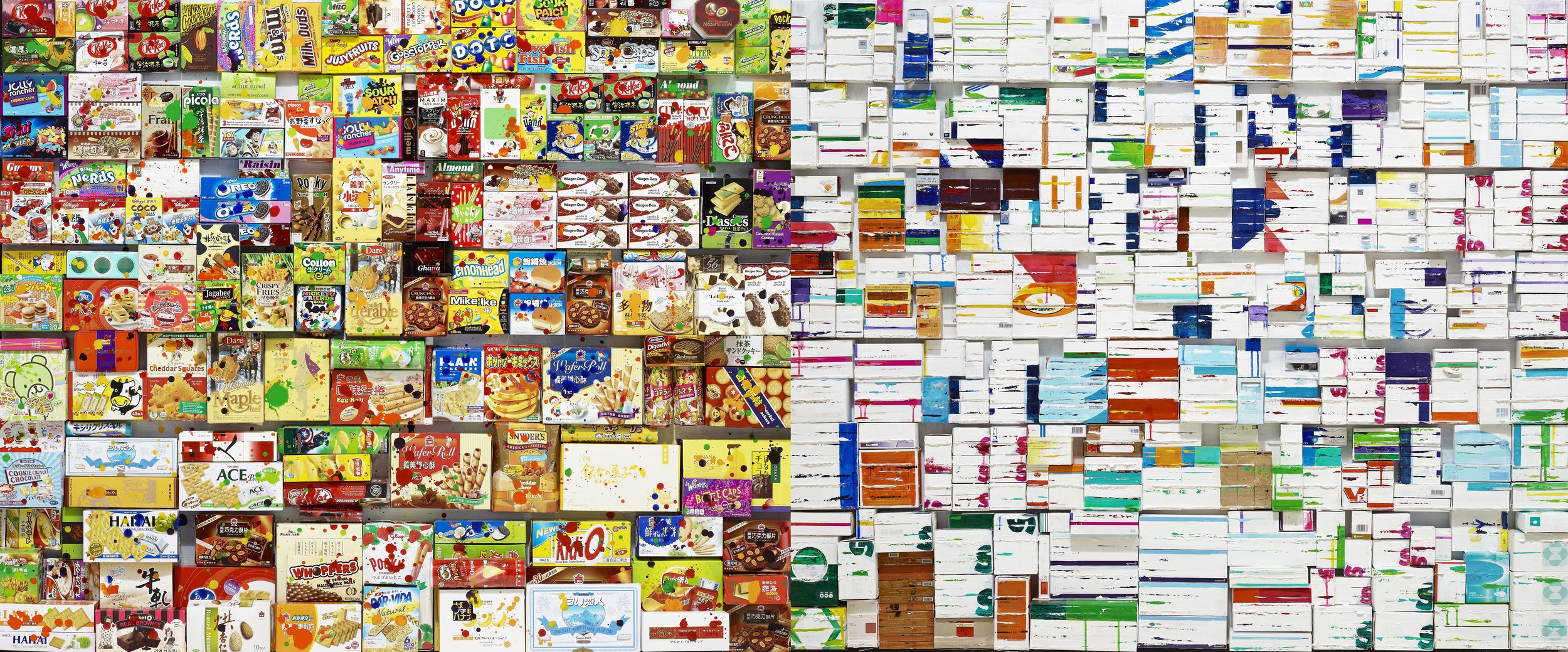
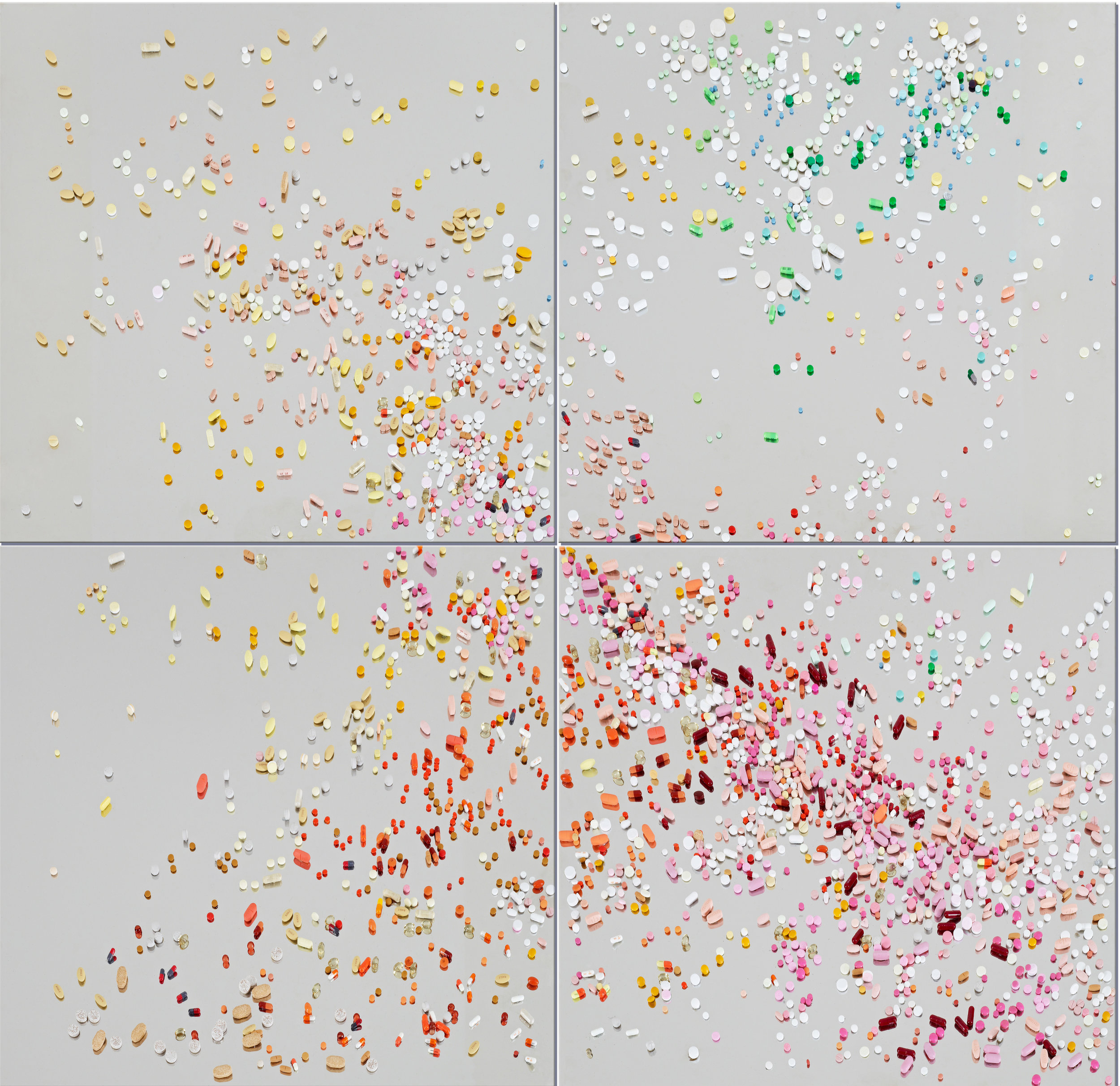
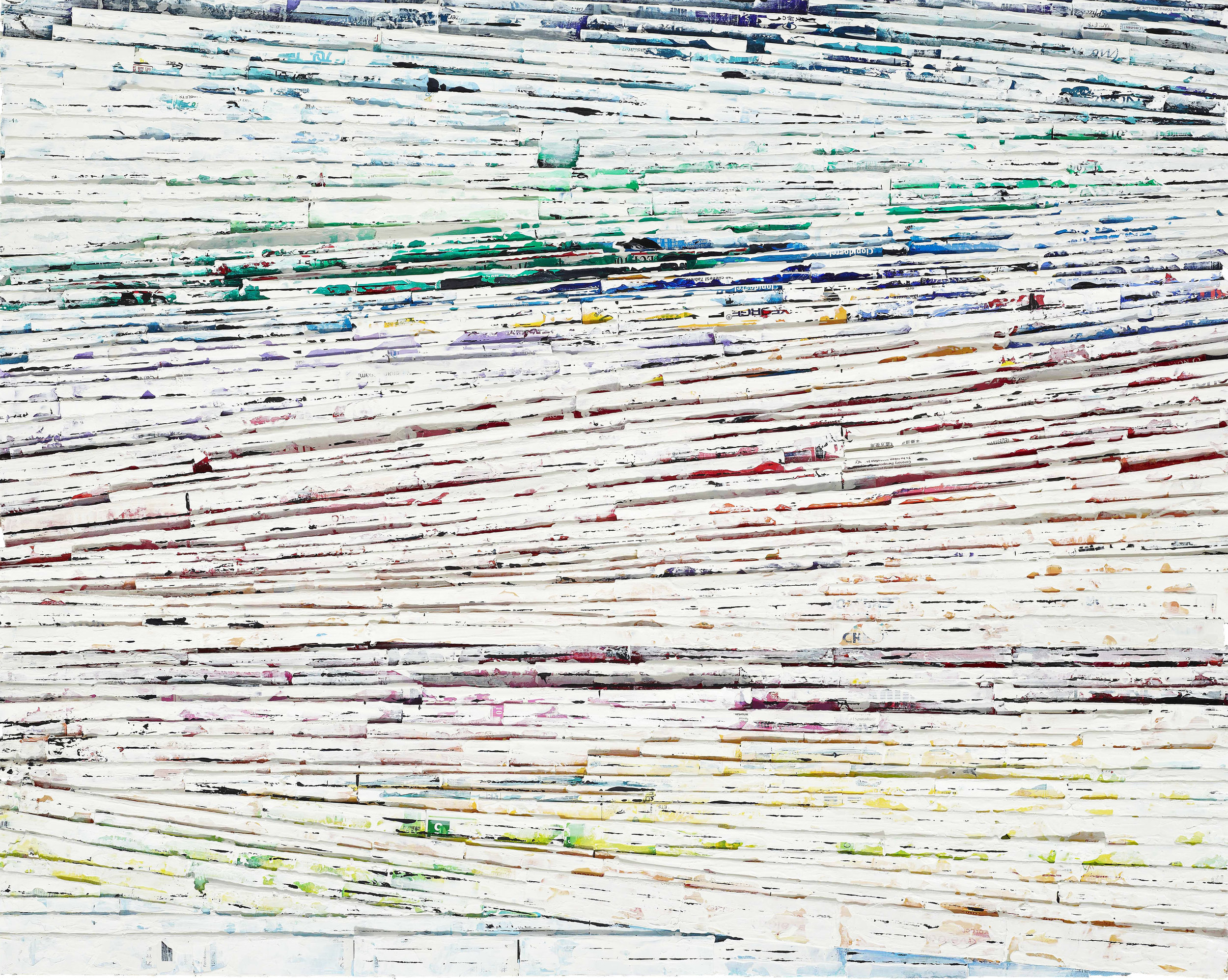
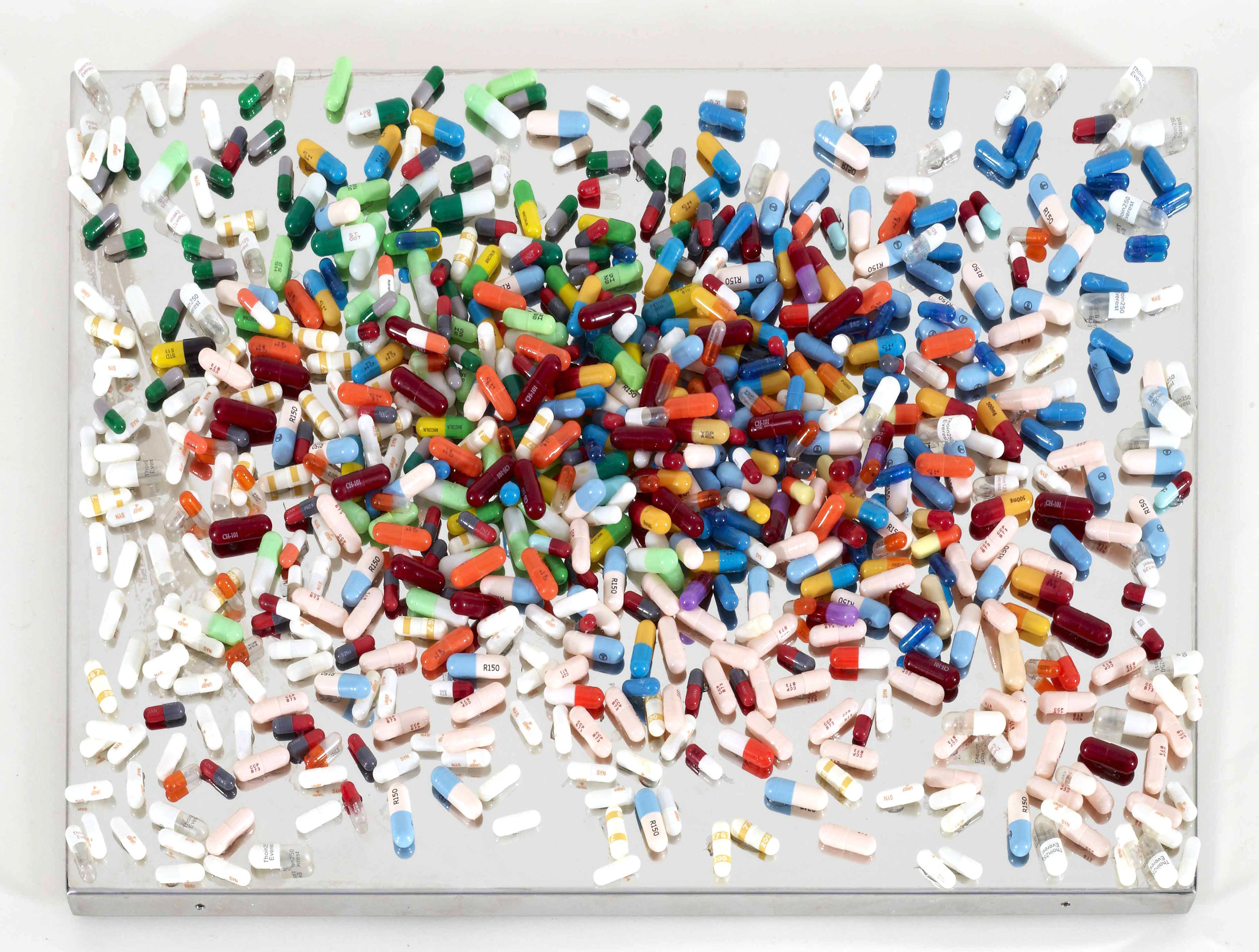
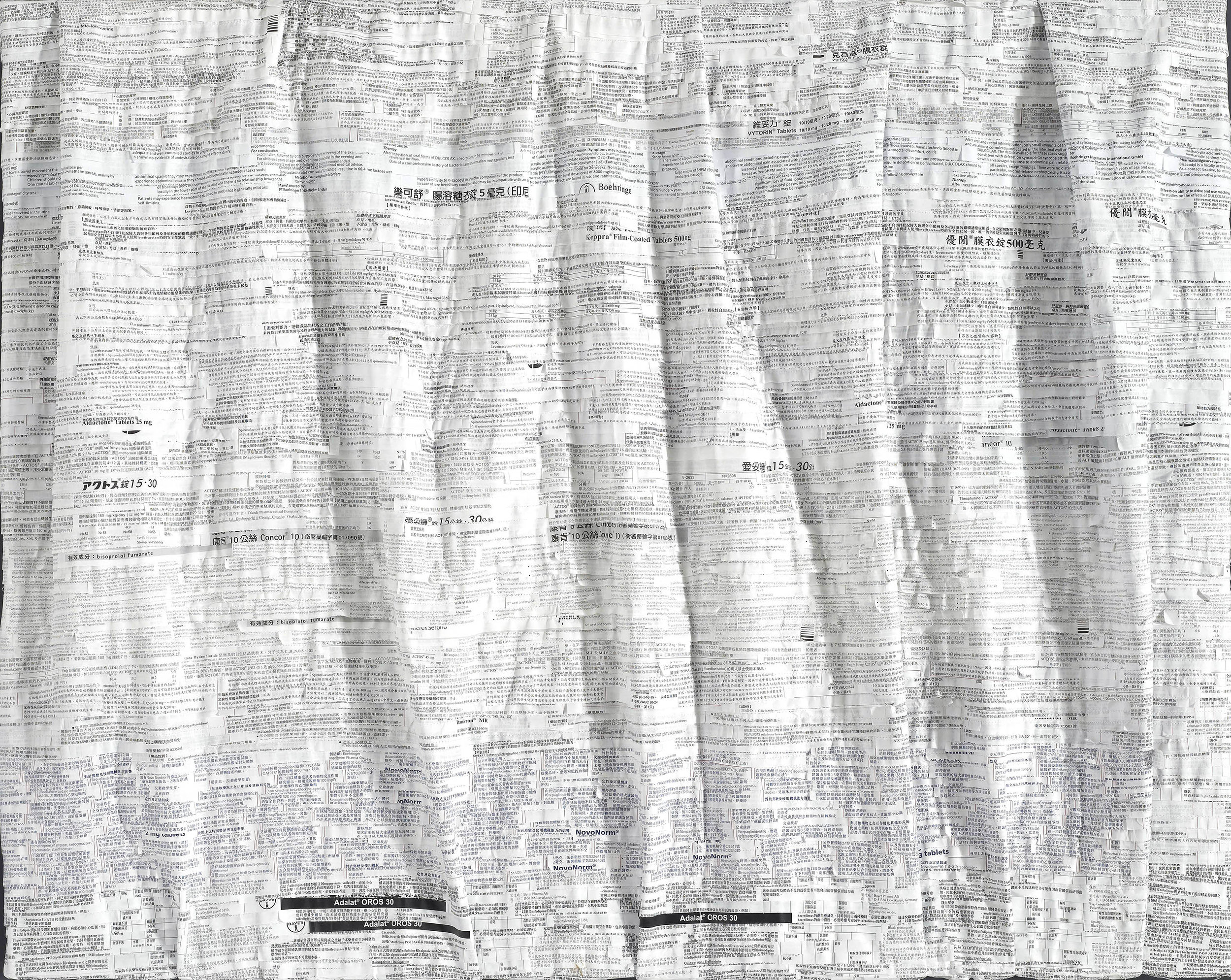
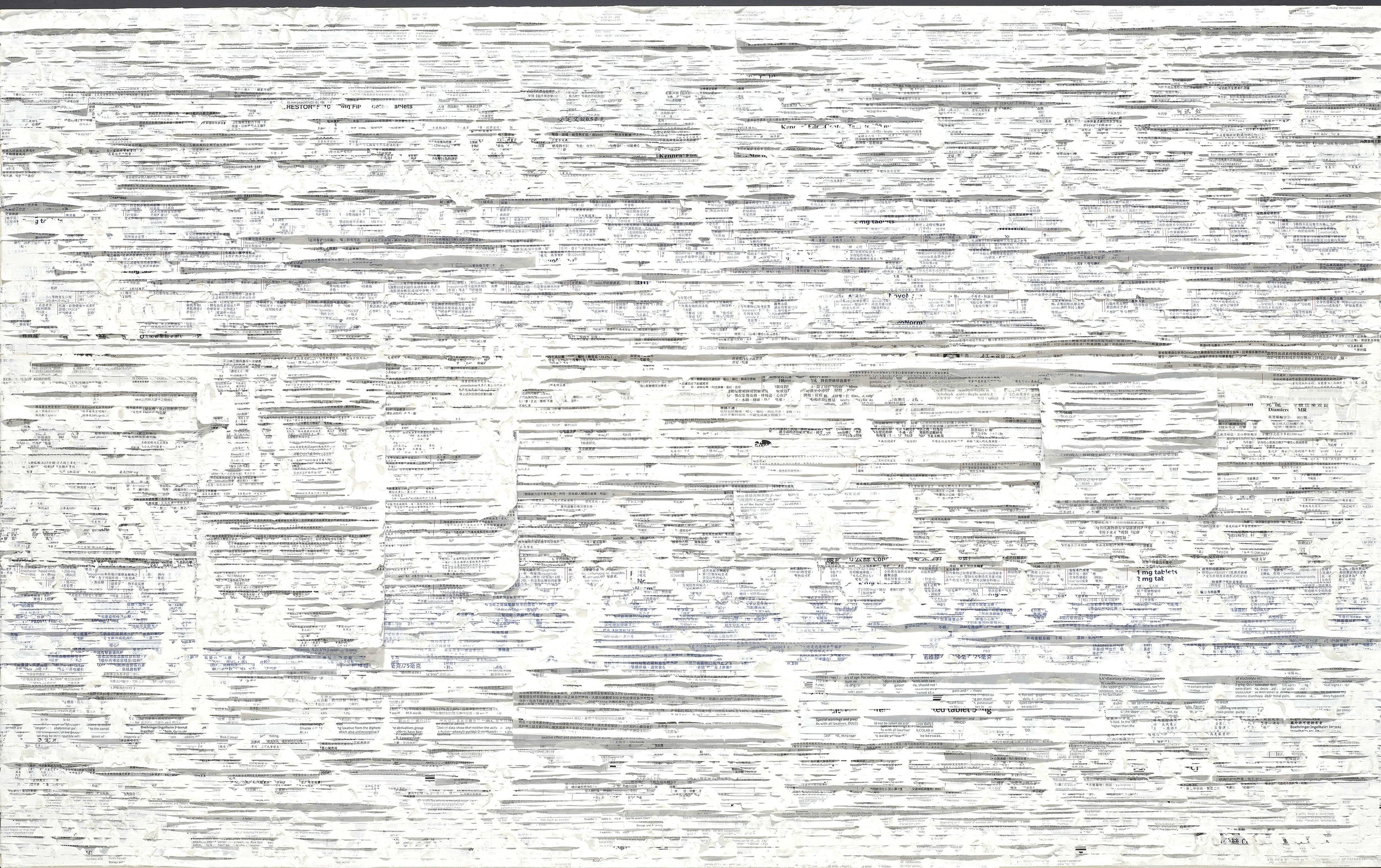
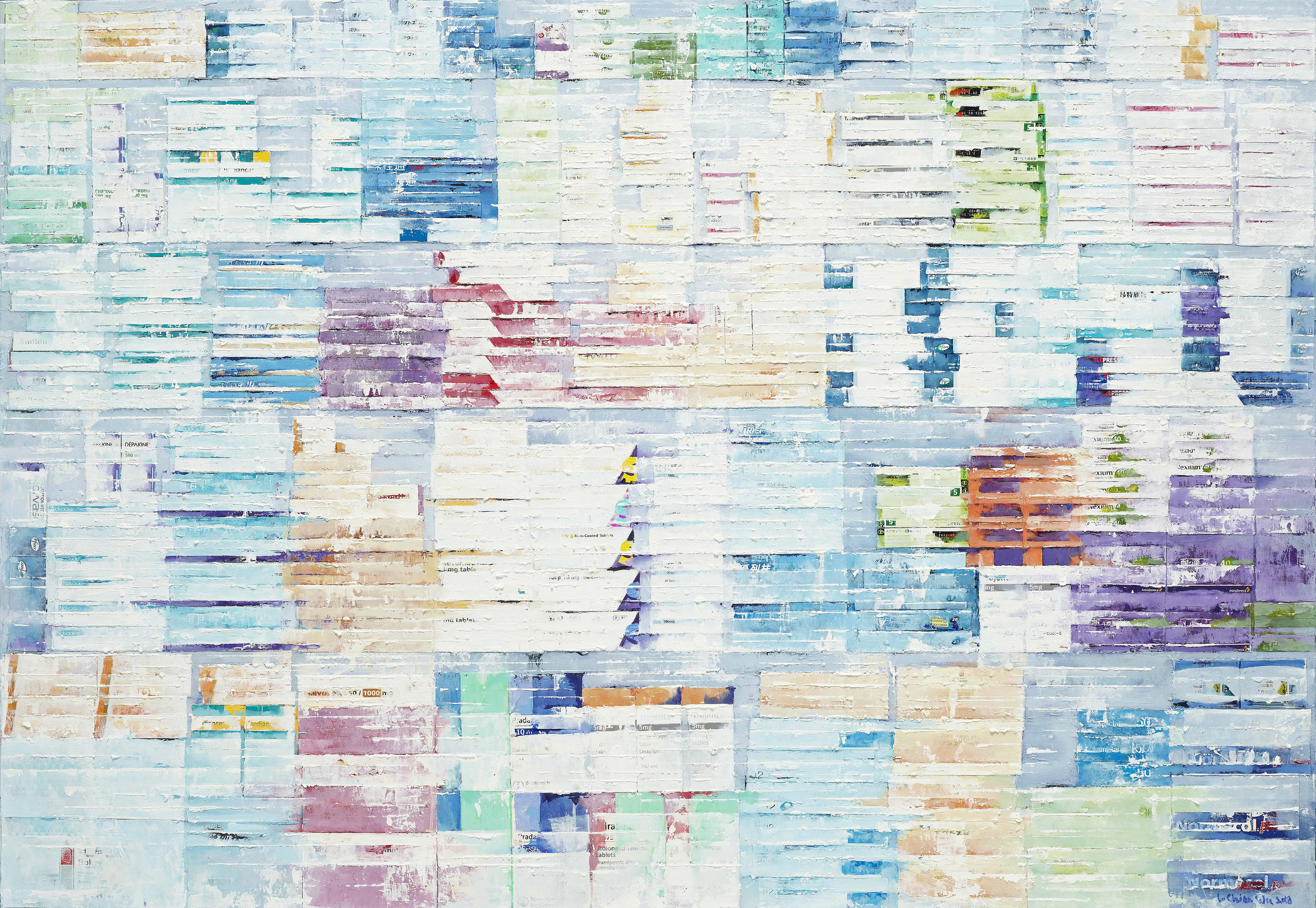
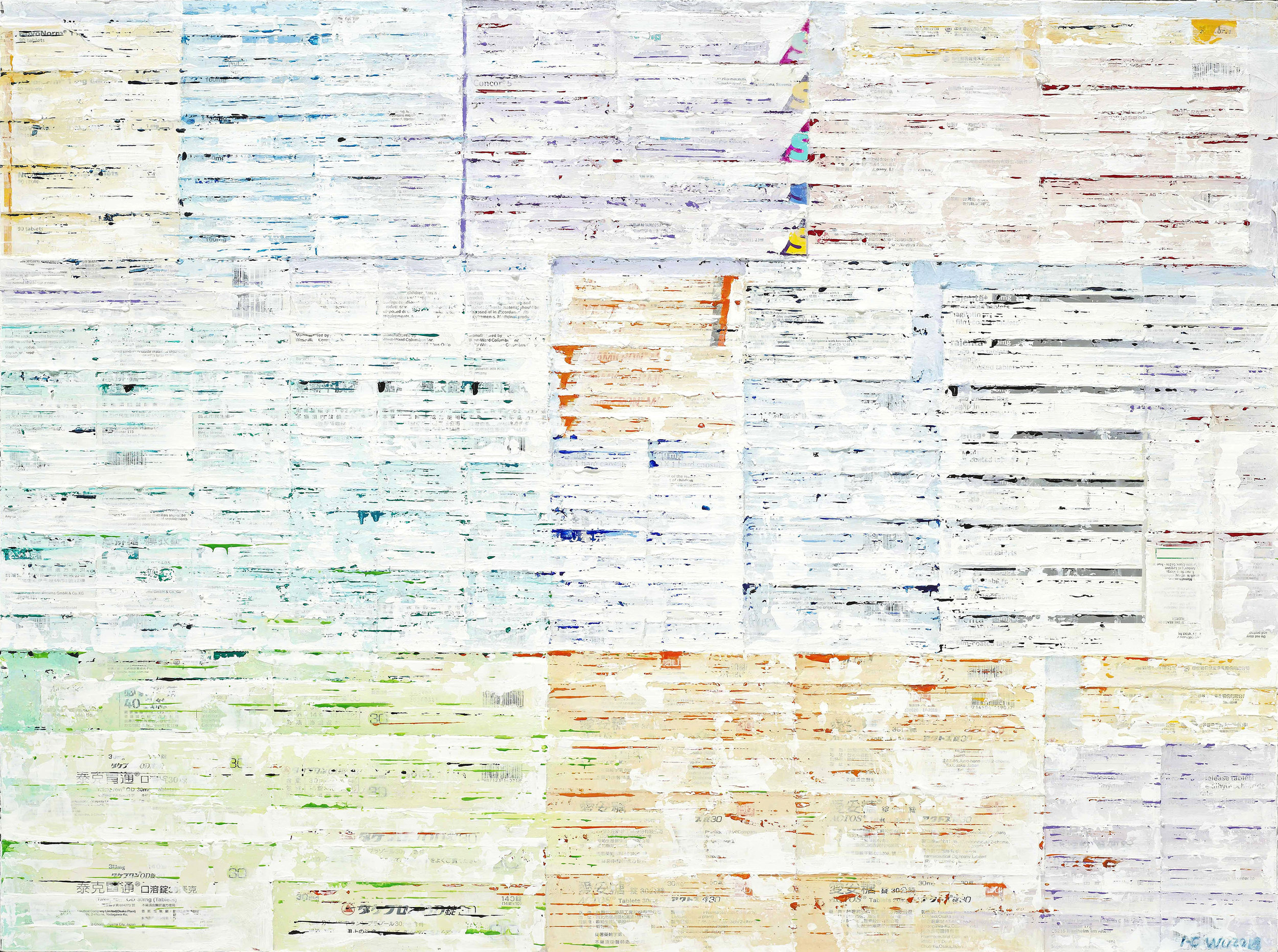
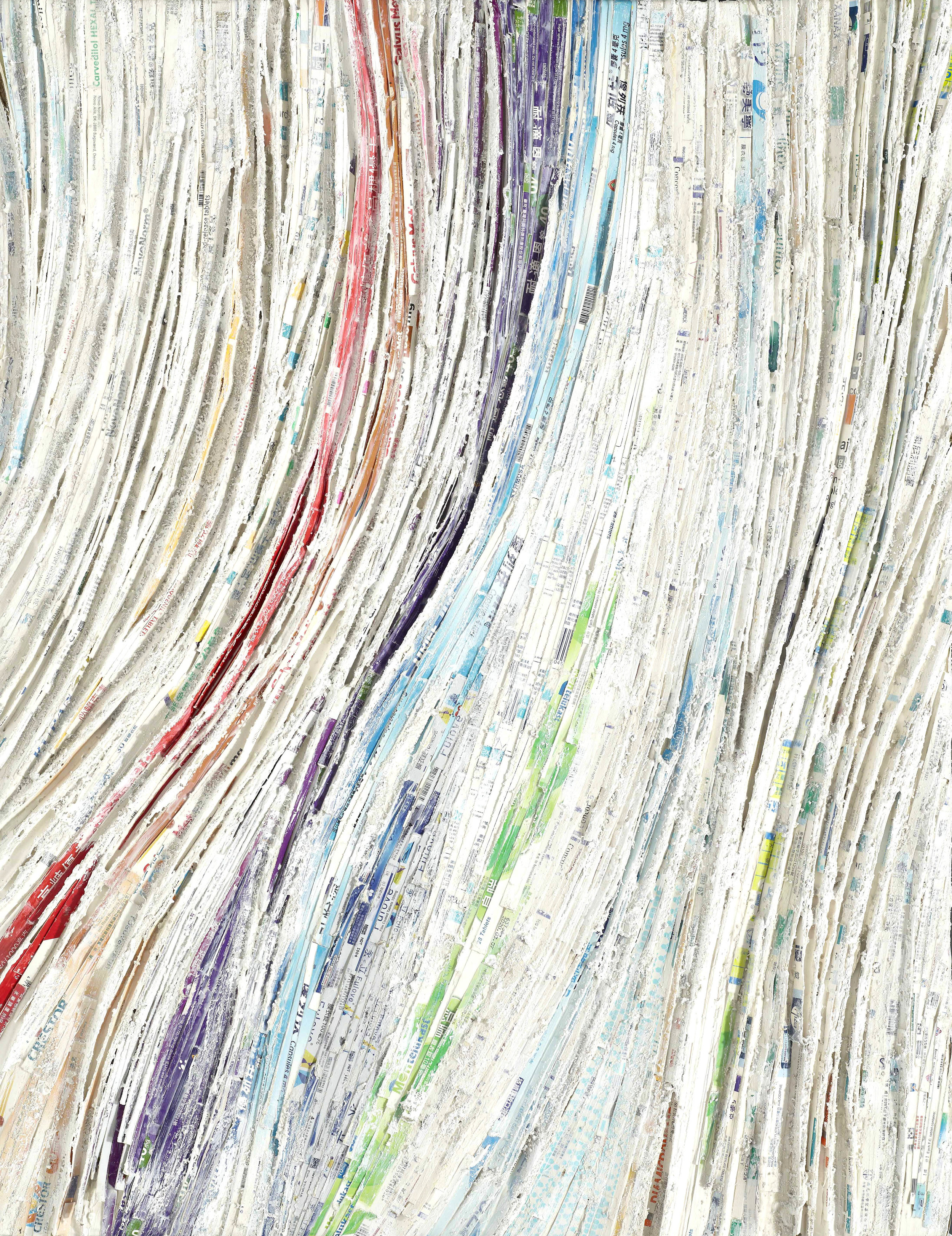
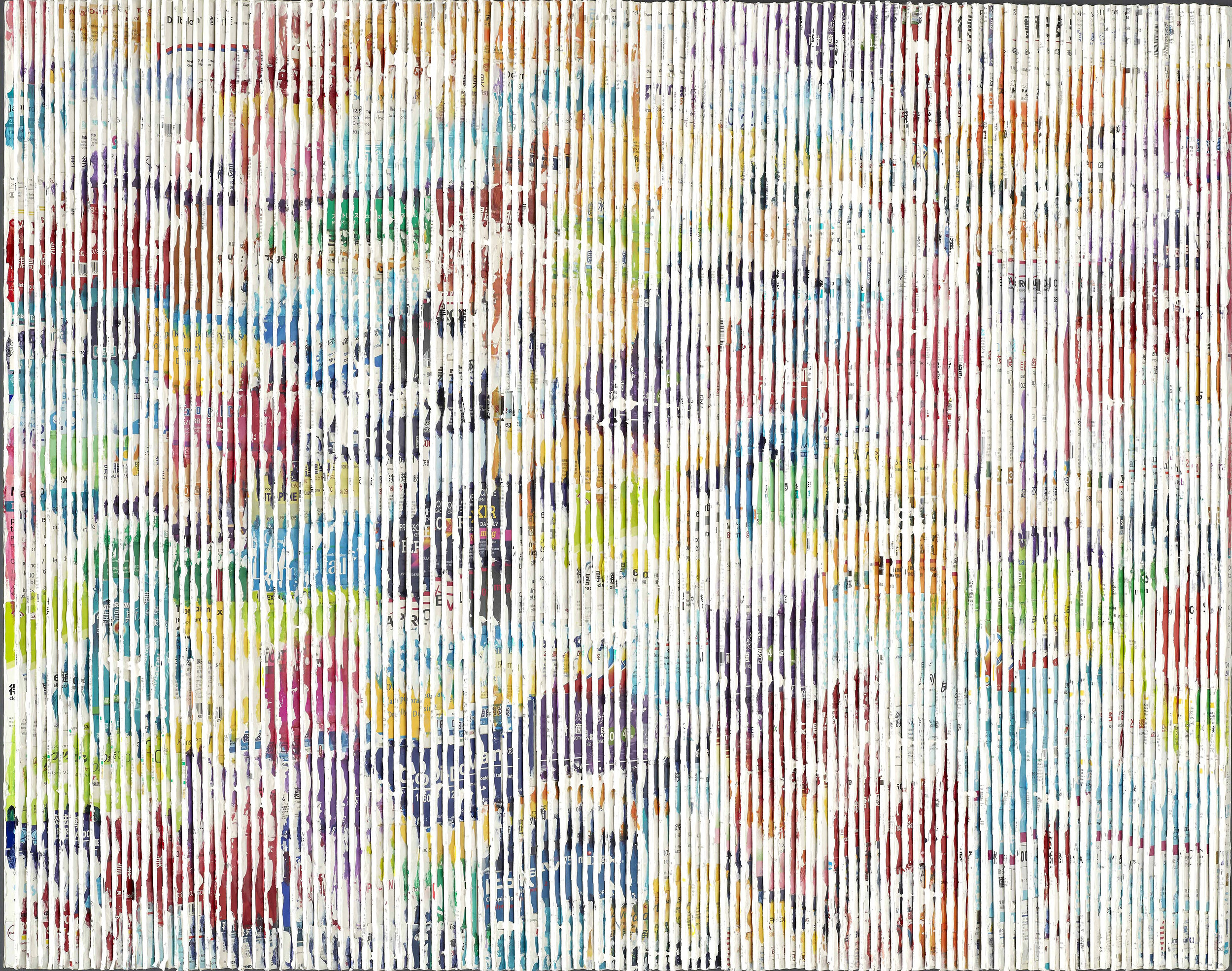
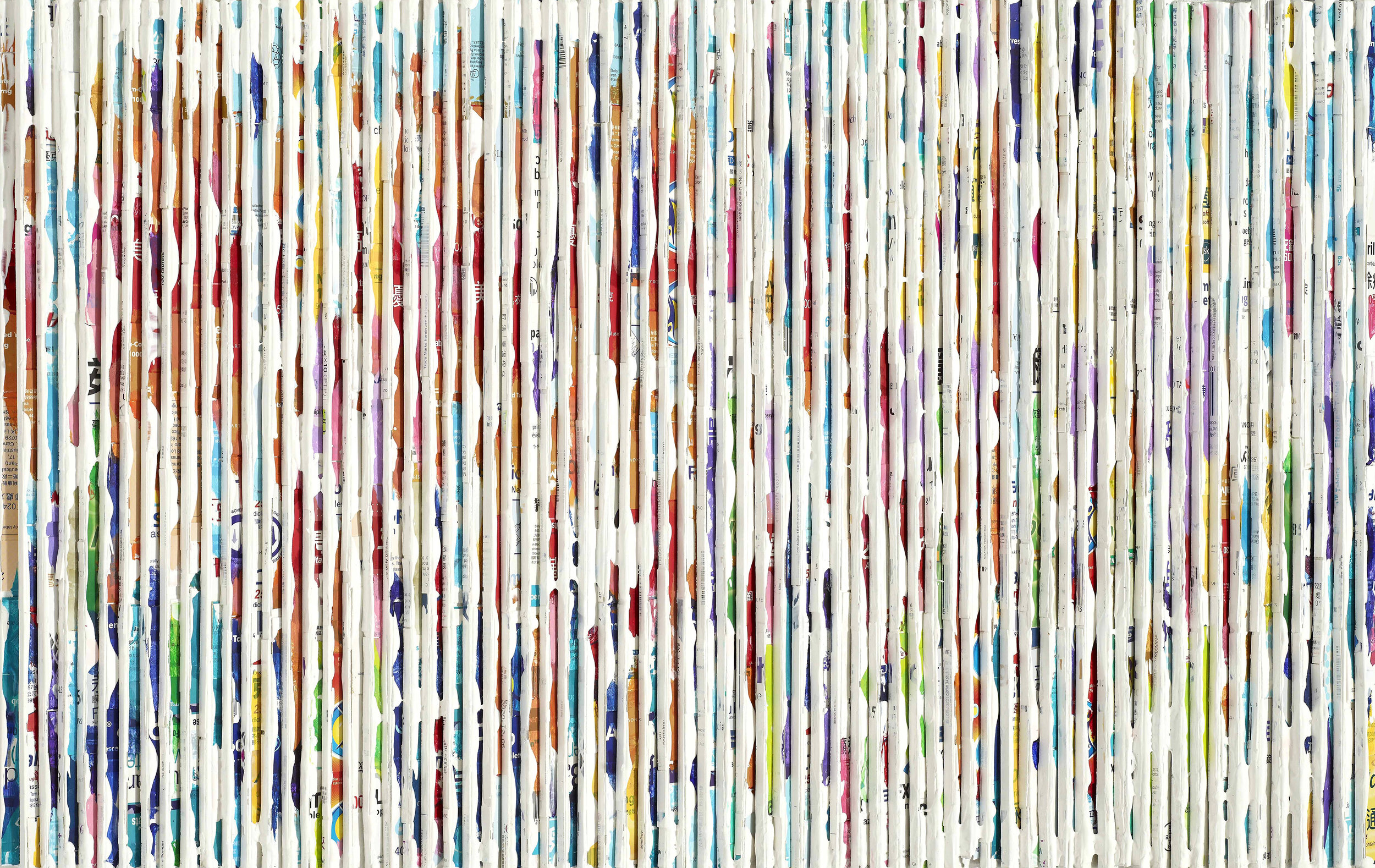
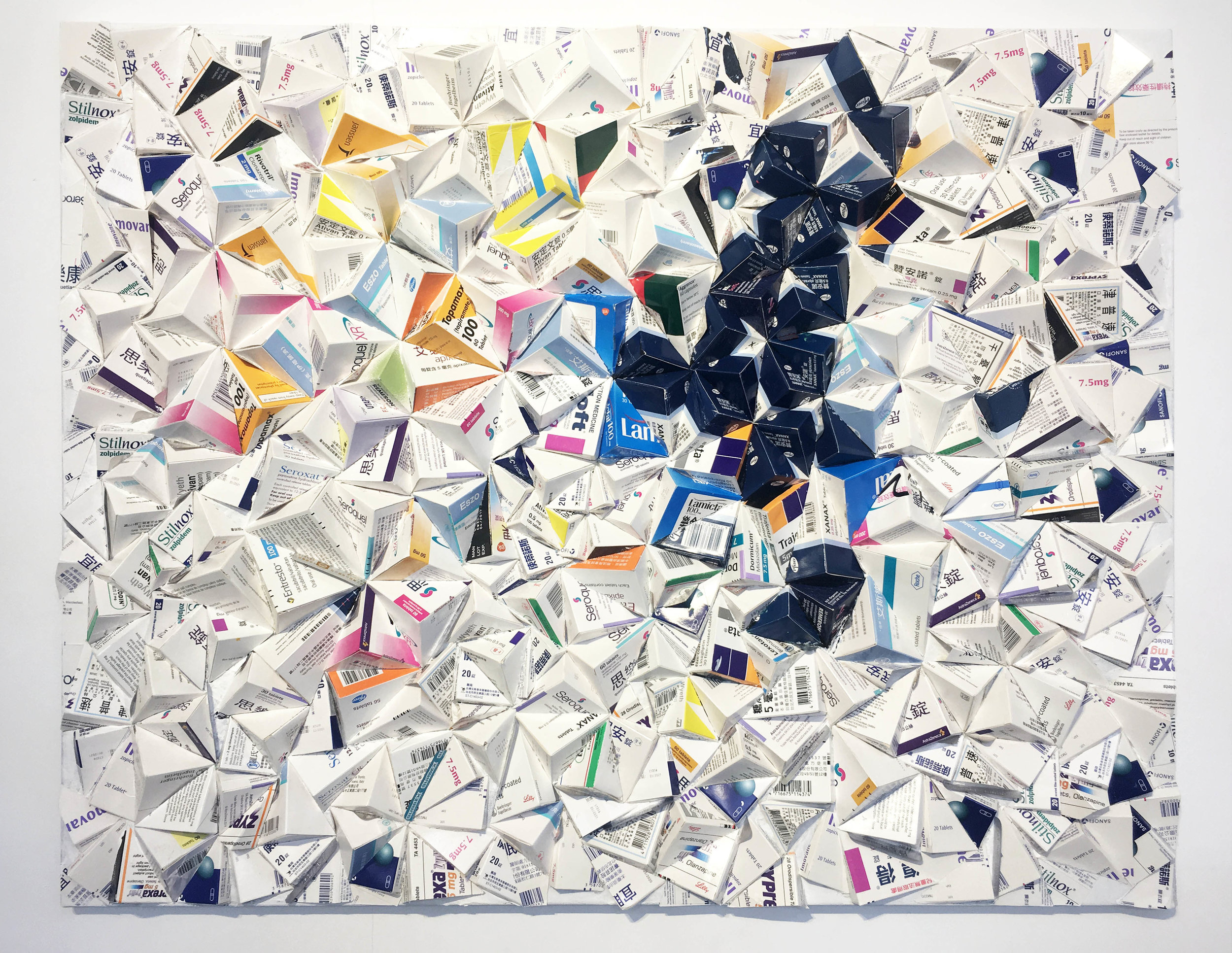
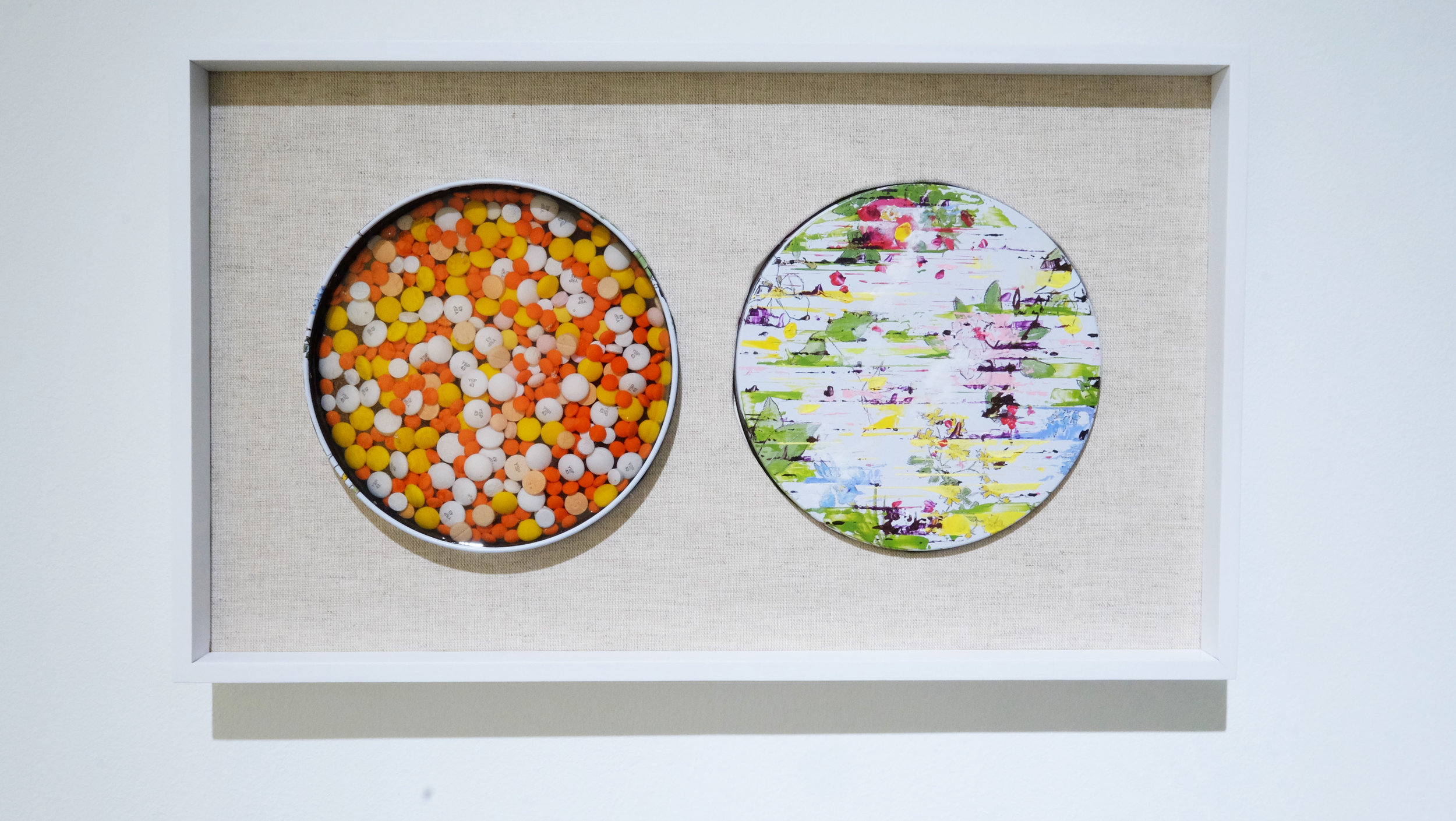
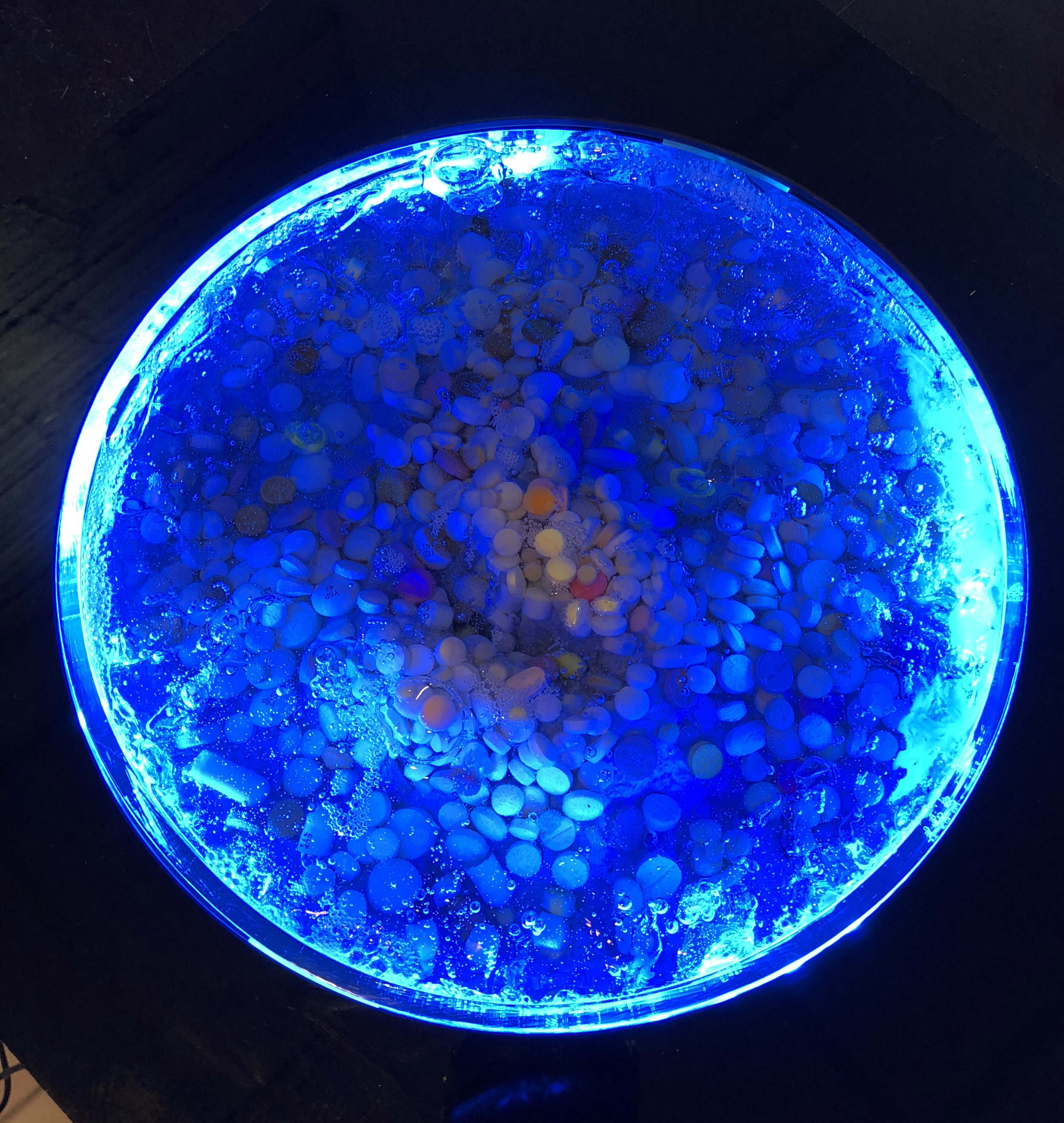
Imagine you walk into a supermarket, where all the groceries on the shelves being not candies and biscuits, nor toys or any other daily products, but all kinds of medicine for illness of every description. Should there comes a day when medicine can be purchased as easily as buying candies, without the permission from pharmacists or any prescription, would you be rejoiced or feel alert?
To relax the consumers’ sense of crisis and vigilance against medication, pills are no longer kept in brown bottles covered with words of caution. Instead, they are now often produced in bright colors or even coated in sugar. Packed with shiny foils and presented in cheerful appearance, these medicines strive to replace the bitter memories of taking medicines with a pleasant feeling generated by a handful of sweets.
Taiwanese artist Wu I-Chien uses ‘medicine’ as her theme of creation. She turned thousands of pills into installations to discuss the medical situations in Taiwan. In the series of ‘Bitter & Sweet II,’ a large amount of medicine along with their packaging are collected for artistic practice. Whether they are pieced together with boxes of snacks, stacked up to the ceiling like pyramids in supermarkets, or mixed with candies and rearranged into firework patterns, together, various capsules and drugs allure people with their colorful appearance while presenting an adorable facet of medicine that overthrows past impressions. The artist juxtaposes medicine with candies, indicating a gradually blurring bindery between the two. However, when people started to forget the symbolic of illness in pills, an issue concerning uncontrolled lavishness of medicine usage has surfaced. Responding to a general belief by the Taiwanese saying that pills can provides cure in sickness and promote vitality in health, Wu I-Chien reflects upon such medical notion and bring forth the fault of our National Health Insurance(NHI) system.
A Sugarcoated Burden
Artist Wu I-Chien has observed that many Taiwanese, especially the elders, have the habit of stocking up medicines. They store excessive drugs at home, and are unwilling to give up their accumulations like holding on to some kind of amulets. Perhaps to these people, keeping medicine close is as comforting as having candies in their pockets, while purchasing drugs is satisfying like shopping in the malls. This custom has attracted the artist's interest, but at the same time raises her doubts about the NHI system in Taiwan.
Hence, Wu started to collect expired drugs form hospitals for her art creation. During the process, she learnt that medicines in Taiwan are not only cheap but can be easily accessed; meanwhile, taking pills is no longer a painful and serious deal. Bottles displayed in pharmacies are no longer made in plain white, but are now covered in colourful packaging, boosting people’s purchase desire with visual stimulation. Potions are entitled with words implying ‘safe,’ ‘sound,’ ‘smooth,’ and ‘comfort’ to relax the customer’s vigilance as if all that troubles could be vanished within one single dose. Moreover, health food claiming to be suitable for any time has become the latest trend. These products make the consumers feel at ease by surviving between medicine and food, and eventually becoming a compromise of keeping health within our busy modern life.
Once medicine no longer serves as a remedy against diseases, a burden resulted from the hoarding and abuse of drugs immediately reflects on our the NHI system. The NHI in Taiwan has been providing convenient service to the public with a premium fee that is relatively low. Since its origin in 1995, over 99% of the citizens have been benefited from this social welfare. However, the cheap medical service has led to patients randomly registering at the hospitals and misusing prescriptions and drugs. Consequently, an estimated additional expense of 10 billion NT dollars is wasted every year. Once the government has lost its ability to afford such overwhelming spending, drug companies will be forced to lower their price, resulting in a vicious cycle sugarcoated in the name of general convenience.
An Imagination towards Artivism
Wu I-Chien examines medical issues with her pill installations and ponders over our modern lifestyle regarding medicine usage. Such art practice embodies the concept of ‘social engagement,’ reflecting a postmodernist stance originated from the second half of the 19th century which encourages art to actively respond to the society. Under the influence of Avant-guard and Fluxus artists in the 60s, art creations have broken away from the ideology promoting individualism and the autonomy of art. Art has since approached ‘movements’ and ‘life,’ and become a reactionary force in society and politics. Today, ‘social engagement’ has set a trend in the 21th century art. Contemporary artists now often practice art with a keen civic awareness by stepping into the complex reality with their creations in various forms.
A new-created term emerged in recent years, ‘artivism’ has indicated a tendency of ‘art’ merging with ‘activism.’ Creations under this name emphasize notions of ‘participation’ and ‘community’ while turning non-artistic actions into common forms of contemporary art practice. Artist Wu I-Chien creates installations out of numerous medicine as a response to the medical situations in Taiwan, not only did this implies an increase of social awareness in Taiwanese art, but also provides us another imagination of the relation between art and the society with her acute political standpoint. Starting from the basic unit of pills, “Bitter & Sweet II” creates connections with its visitors with fascinating forms of creation; meanwhile, the exhibition seeks to raise public awareness among our surroundings and current situations.
